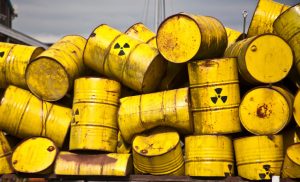5 Safety Rules for Handling Hazardous Waste!

Handling hazardous waste can be overwhelming with the numerous rules and regulations to follow, with grave consequences to any mishap. There are numerous precautions to take in disposing of your hazardous waste that prevent injury and further effects to the environment.
The first step in devising a hazardous waste disposal plan is to assess all your procedures that produce waste and consider how you might diminish their byproducts. Another thing you can do is consider which industries might able to use your waste products for their production allowing you to recycle the product as opposed to disposing of it.
- Segregate Waste
Make sure that you always segregate your waste products to prevent chemical reactions from happening. Solids, liquids, and gasses should all be separated for disposal. Furthermore, be sure to follow government guidelines of how to separate chemicals into the appropriate categories. - Label Containers
It is incredibly important that all hazardous waste disposal containers are properly labeled so they can be handled properly. Be sure to use official EPA labels without any abbreviations, and always include the EPA hazardous waste number. Labeling simply with the category of waste is also insufficient. Failing to properly label can lead to leaks, explosions, and insufficient treatment, leading to a greater potential for an unsafe work circumstance and environmental hazards. - Liquids go in Screw Tops
When disposing of liquid hazardous waste the containers in which you store them should always be tightly sealed with no chance of leakage. Be sure that you have a leak management systems in which to store all your liquid waste, and to always keep track of any liquid that might leak out of your containers, or be spilled in transferring the waste to containers. - Inspect Weekly
State Health and Environment Departments provide all the resources your company will need to properly handle all your hazardous waste. They will further come and inspect your facility to not only make sure that are you complying with the regulations, but also to look for things you might have missed that could be of harm to your employees or the environment. Inspections are of the utmost importance anywhere that hazardous waste is stored. - Document Everything
It can be easy to put off something like keeping detailed documents of your waste management. While it seems like unnecessary and extra work, it is crucial in times of crisis. If something were to ever go wrong, your documentation will help you get to the bottom of the issue faster and know exactly how to respond. Don’t get lax on creating an efficient and strict documentation system because it might just end up saving you lots of money and potentially lives too.
Since hazardous waste standards were implemented in 1976, disposal standards and methods have only gotten better and more efficient. If you have a facility that handles hazardous waste products be sure to keep up with your state standards because they cannot only help you keep your workplace safe, but will ultimately save you the money and trouble of spills.
If you’re looking for a company to help you with your waste management, give KenBay a call!


